Decades have passed since the loss of Martin Luther King, Jr., yet Americans continue to find ourselves surrounded by the turmoil caused by racial inequity and prejudice. This month, a nation watched as thousands of aggrieved people, primarily white men, attempted to take over the Capitol and impose their will against democratically elected leaders. January 6, 2021 is a day that will live in infamy—and a day that is striking in its marked contrast to other protests at the Capitol throughout history, including the March on Washington, in tone, violence, and response.
Related: 10 African American History Books Every American Should Read
Over 50 years have passed since King's tragic assassination, and it is clearer than ever that we still have miles to go to accomplish the goals of King’s vision. The following King biographies, memoirs, and writings set his work in the context it was created—something often sadly lacking in our discussion of the trail-blazing speaker's life and history. Reintroduce yourself to an icon; along the way, you'll meet the man.
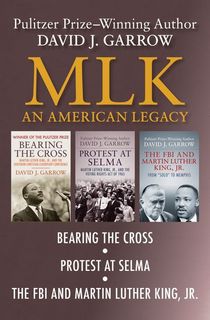
MLK: An American Legacy
If you’re ready to take a deep dive into King’s life and legacy, these three books by David J. Garrow are the perfect place to begin. The first entry in Garrow’s trio of books about MLK won a Pulitzer Prize in 1987. Garrow’s intensive research, interviews, and access to FBI case files allowed him to produce a definitive biography of the man who became an American icon.
Related: "I've Been to the Mountaintop": Revisiting the 1968 Assassination of Martin Luther King Jr.
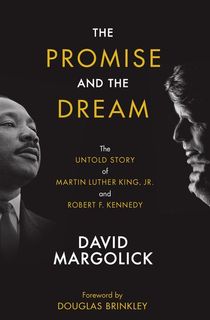
The Promise and the Dream
King was not the only political figure assassinated in 1968. Sixty-two days after King’s assassination, Robert F. Kennedy, younger brother of JFK and senator for New York, was shot by a Palestinian protestor. In this fascinating dual biography, David Margolick investigates how each changed the political path forward—King as outside agitator, Kennedy as inside operator.
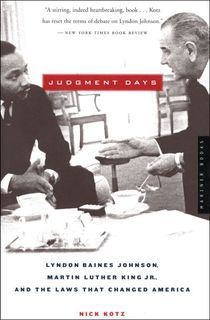
Judgment Days
This joint biography of President Johnson and Martin Luther King, Jr. may focus a bit more on LBJ than MLK, but it offers a valuable frame for understanding King in the context of the last five years of his life, as the Civil Rights Movement fostered real change at the federal level.
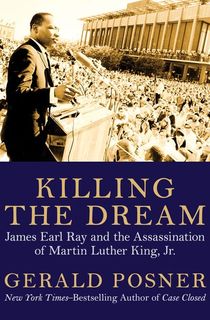
Killing the Dream
Assassinations tend to draw conspiracy theories: the idea that just one person can be behind the death of a highly visible, presumably highly protected figure floors the mind. MLK’s assassination is no exception, and Gerald Posner’s investigation into a wider conspiracy is one of the finer attempts at pulling the threads of a plot together.

Parting the Waters: America in the King Years 1954-1963
Branch offers another tome of a biography on King in Parting the Waters. Branch’s offerings are meant for the readers who are ready to spend a good chunk of time understanding the Civil Rights Movement as a whole. This, the first of three installments, runs over 1,000 pages—so put on your reading glasses.
Related: 20 American History Books to Educate and Inspire Readers of All Ages

The King Years: Historic Moments in the Civil Rights Movement
Looking for Branch’s authority in a bit of a smaller bite? We’ve got you covered. Branch also wrote The King Years as a sort of highlight reel of the Civil Rights Movement during the King era. Although not as thoroughly detailed as Branch’s other work, it provides a great starting point to learn more about King.
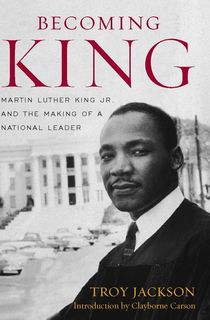
Becoming King
Dr. King’s faith was an integral part of his life and his activism. In this revealing book, Jackson focuses on King’s early years in the ministry and his first excursions into activism. The centerpiece of this work is the Montgomery bus boycott, the moment at which King became a national figure. Jackson investigates how King spoke and thought before, during, and after the boycott to show new sides of the figure.
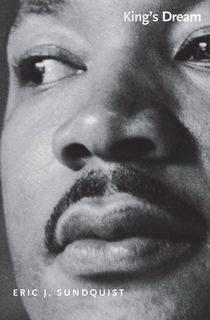
King's Dream
More than anything else, the “I Have a Dream” speech has come to symbolize MLK—and in some minds, represent the totality of the activist’s life and goals. Here, Sundquist takes this synecdochal speech apart to go beyond the facile ideas we have about the speech itself, the Civil Rights Movement, and Martin Luther King, Jr.
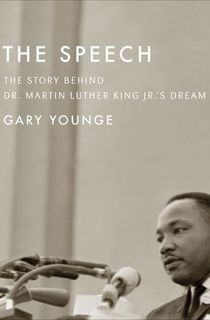
The Speech
In another keen dissection of the “Dream” speech, Younge interviews friends, co-leaders, and other icons of the Civil Rights era to unpack the moments behind the words. Offering readers who were not alive at the time of the March on Washington a new window into King’s words, this small-but-mighty read is a worthy one.

Black Theology & Black Power
Martin Luther King Jr. was first—and perhaps foremost—a theologian. His work was greatly inspired and shaped by his faith, and framing his calls to action in an explicitly Christian morality made Civil Rights more palatable to a large swath of America. To learn more about the theology that underscored the movement, we suggest Cone’s exploration of liberation as the central tenant of Christianity. Cone is more radical than King was, but his message clarifies how religion was both a salvation and a framework for action during the Civil Rights Era.

Waking From the Dream
The Civil Rights Movement did not die with King. In this book, you’ll discover how the Fair Housing Act was passed after King’s death, how some leaders were galvanized by his death, while others were left by the wayside. Although there were further fractures within the movement after King’s assassination, the struggle and triumphs continued.

My Life, My Love, My Legacy
This posthumously published memoir was reconstructed from a series of interviews given to Dr. Barbara Jordan by Coretta Scott King in the last year of her life. This memoir is deeply personal, including some rather petty details. But it shows Coretta as the woman she was—intelligent, fiery, and a born leader.
Related: The 15 Most Fascinating Biographies of the Last 25 Years

The Autobiography of Martin Luther King, Jr.
Calling this book an autobiography may be more of a clever marketing ploy than a true description, but it is nonetheless worth reading. Carefully collated and edited by Clayborne Carson, The Autobiography of Martin Luther King, Jr. brings together a collection of King’s journals, speeches, interviews, and more to recreate his life.

Why We Can't Wait
Experience Dr. King’s words for yourself in Why We Can’t Wait, his 1964 treatise about why the time for civils rights was in the very moment King and his reader stood. After King’s “Letter from Birmingham Jail” went the 1963 equivalent of viral, publishers reached out to the leader to discuss expanding its themes into a book. This powerful narrative explores the history of protest, the meaning of nonviolent protest, and the lack of progress felt by black citizens of the mid-20th century. If nothing else, reading “Letter from Birmingham Jail” should be a requirement for all American citizens to understand the history of inequality and pain—and how easy it can be to exempt oneself from a problem in which all citizens are implicated.

March: Book One
John Lewis has been a House Representative for Georgia since 1987. Before that, he cut his teeth as one of the “Big Six”, the main leaders of the Civil Rights Movement. In March, Lewis, alongside illustrator Nate Powell, gives his readers a firsthand look at his life growing up in rural Alabama, his first meeting with Martin Luther King Jr., and the beginning of Lewis's civil rights work. Each of the three graphic novels in this series offers a powerful and unique perspective. March will satisfy both teens looking for more information on the Civil Rights Movement as well as adults.
Related: 19 Facts About Black History That You Might Not Know
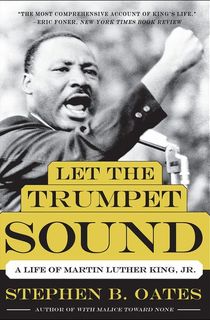
Let the Trumpet Sound
This biography, under 600 pages, is a great place to start if you’re looking for a more serious take on King without having to crack open multiple 1,000 page volumes. Oates’s passion for his subject jumps off the page. Whether you’re familiar with King’s legacy or maintain only a passing understanding of his work, Let the Trumpet Sound will teach you more about the man’s life.
Featured photo of King at the 1963 Civil Rights March on Washington, D.C.: Wikimedia Commons








